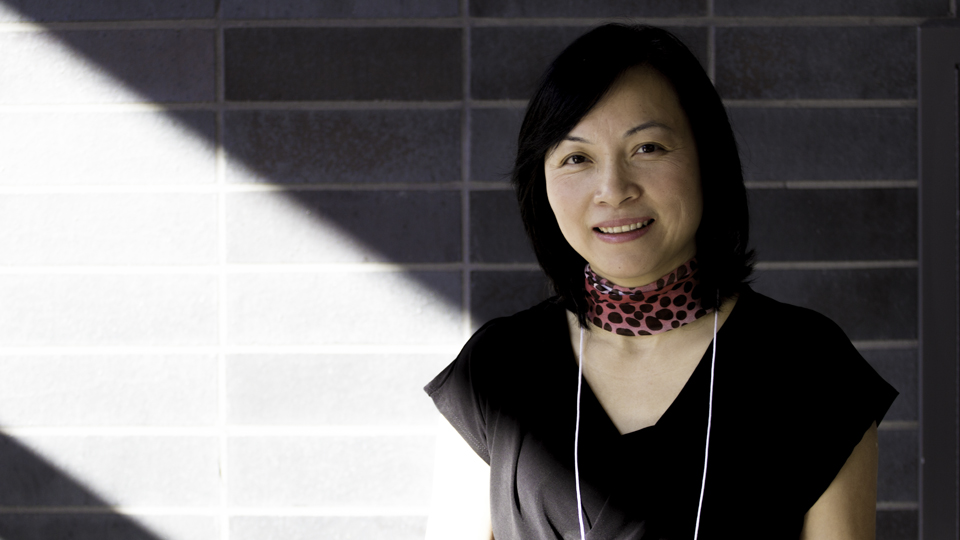UTM’s Living Library was hosted in the Instructional Building café last week, providing students with the opportunity to speak with and learn more about several important figures in their fields of interest.
Among those who attended was Anna Yin, a Chinese poet who immigrated to Canada in 1999 and who has been writing for the past 10 years. Yin has published hundreds of poems internationally and was a finalist for Canada’s Top 25 Canadian Immigrants Award in both 2011 and 2012.
Yin visited the Living Library for the first time this year and sat down with me to discuss the role poetry plays in her life, why she called her living book, Poetry Alive, and the advice she has for aspiring poets.
The Medium: Are you excited for your first year here?
Anna Yin: Yes, I have always enjoyed talking with students. I want to share stories about myself because I found it very difficult to balance my life with my writing. So I always encourage them to have a good balance—otherwise, you’re miserable. Even if you have really good talent, you need to have the patience. I also really enjoy it because students have really open minds.
TM: What made you decide to come here?
AY: Alan [Lovette], the librarian, asked me because he knows I have a long story. He knows why I started writing and he thought it was good inspiration for students. Also, I came here because I think I can share the balance. I don’t want people to lack the balance [between life and writing]. If I’m invited again, I would like to come back here.
TM: How do you find that balance?
AY: If you love writing very much, you wouldn’t give up. So, you just need some patience, and you focus on making your life right now, and it will come back to you. For me, poetry found me because at that time I focused on my life, studying, working, and being a wife and mother. I lost myself, I was so busy with my life. Then I read a story to my son and wanted to express myself again—I found my writing again.
TM: Can you share a bit more about your collections?
AY: My first collection, Wings Toward Sunlight, was published in 2011. Actually, it came out as a final project because I took creative writing and these were my final 14 pages of poems. For that project, I also wanted to make it a book, which is why I made it into a manuscript. My professor said my voice is unique and fresh and I published my second collection, Inhaling the Silence, in 2013.
The Medium: Which poem meant the most to you when it was written?
Anna Yin: “For Irving Layton”. It isn’t my favourite, but it’s my story.
TM: You were able to capture your life story in a single poem?
AY: In 2011, Irving Layton’s son, Max Layton, asked me to help him organize Irving’s 100th birthday anniversary, because I host a lot of events in Mississauga. So I did some research on Irving Layton and he said that poetry shows the dark of our soul. But I disagree because I think poetry saved me. It let me see myself, and it made me feel hopeful, and that’s why I wrote this.
TM: How did poetry save you?
AY: After I came to Canada, I always worked in the IT field. As an immigrant family, we don’t spend a lot of money so I felt like there was no excitement. I read The Emperor’s New Clothes to my son, and at night, I couldn’t sleep because the boy in the story asked who he was and I found that I was lost and so sad. So I began to write. And after my writing, I posted on the Chinese immigrant forum and some people [didn’t] believe I was an immigrant, which made me happy because I thought, “I can write.” Then I just continued.
TM: Do you have anything in the works right now?
AY: I have a manuscript going out next week and I’ve also translated the Governor General Awards winners’ poems and I introduced them to China, so they’re publishing my translations. I also want to have a book of translations out and I want to keep doing workshops.
TM: What appeals to you about workshops?
AY: When inspiration hits me, I only have so much time to write. I’m the kind of person, I don’t want to say too much—I want to leave much to the reader. So poetry is the perfect tool for me. Also, I found I can combine Chinese culture and beauty into a Western style. So I wanted to use the workshops to continue it.
TM: What is the one piece of advice you’d give aspiring poets?
AY: Be patient and be grateful, because for me, on my journey, a lot of people encouraged me—otherwise I would already have given up. Also, find a good mentor and have a positive attitude, because sometimes it’s really frustrating.
TM: When it comes down to it, what does poetry mean to you?
AY: I found my soul. And I connect with other souls as well, readers and poets or anyone else. I discover myself again. I also see the other world, and I’m more understanding and compassionate. For example, I may complain, but now I’m more appreciative because I see the beauties there. [Poetry’s] meaning for me is that you leave your footprint. For me, life after death, what happens? I would really like to leave something for the world.

